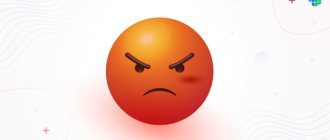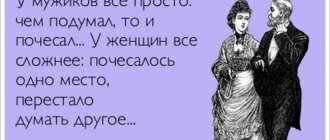Effective training is extremely important for a software developer, because learning new things is a large part of his job. The ability to quickly learn new languages/frameworks/tools will make you much more productive. It's kind of a superpower.
How to buy it? Read from Josh Comeau , an expert with years of experience in software development, IT blogger, and author of the CSS for JavaScript Developers . In the article, Josh describes practices and recommendations that will help new professionals (such as students and those moving into development from another field) in developing their professional skills.
Below the cut is our translation of the English-language material . Please note that the author's position may not always coincide with the opinion of MyOffice.
It is often said that the Internet has democratized education: the entire sum of human knowledge is open to us in a Google search! However, access to knowledge is only half the battle; You must also be able to transform raw information into useful skills. For most of us, the gap between the two can lead to pure study hell—getting stuck, doing assignment after assignment, and not feeling any progress.
In this post, I'll share what I've learned about the learning process and show how I manage to learn new skills quickly.
Combine guided and independent learning
For myself, I have identified two main categories of training:
- " Managed ". Reading textbooks, taking courses, watching YouTube videos. That is, processes in which you act according to instructions.
- " Independent ". Creating your own projects from scratch, “expanding” textbooks, searching for information in documentation. Anything that doesn't involve following manuals.
If you constantly follow instructions, you will definitely end up in learning hell. You won't be able to develop the problem-solving skills needed to succeed as a developer. And when you try to create your own project, you won't know where to start. You will feel like you have spent a lot of time practicing without developing any noticeable practical skills.
On the other hand, if you focus solely on “independent” learning, you will spend forever on this process. Without an experienced guide, you will have to reinvent every wheel, spending days and weeks solving problems that have already been solved. It's a long and frustrating journey. In the worst case scenario, you might quit the job altogether, convinced (wrongly!) that you're just not smart enough for it.
Our challenge is to walk the tightrope between two extremes, to use “guided” and “independent” learning as one. There are many ways to do this, and here are some of them.
Put the important stuff first
There is a good lesson to be learned from the previous advice. The German psychologist Ebbinghaus discovered the “edge effect” for the world, according to which information is best remembered at the beginning and end of the text. So put the best stuff at the beginning or end.
This way you can first work with the answers to the exam, making a summary of the most important things in the ticket.
Education. Books.
CC0
Make mistakes on purpose
It's possible that you, like me, don't like making mistakes. It is important for you that everything goes perfectly the first time.
In general, this way of thinking is useful in various areas of life. For an auto mechanic, mistakes can cost hundreds of dollars, which will then have to be spent on parts. A dental mistake can ruin someone's smile.
But in software development, errors are not so critical. If you make a mistake, you just need to go back to the editor, change the code and try again. Moreover, useful error messages appear as you work: sometimes they can point you in the right direction. This is an incredible luxury that many don't take full advantage of.
I enjoy playing with code even when I'm following instructions. Instead of copying/pasting the provided code verbatim, it's worth trying to experiment with it: what happens if you skip one of the lines? Or change some values?
I try to behave like a scientist. If I have a hypothesis about how a particular piece of code should work, I test that hypothesis by modifying the code to see if it works as I expect. If I realize that my hypothesis is wrong, I can deviate from the guide and conduct a Google survey. I can also add a task to the list of things to study later if the rabbit hole seems too deep.
This process helps you avoid mindlessly following a tutorial on autopilot, that is, copy-pasting code without really understanding what it does and why it is needed at all.
Learning is an active process. After delving into the code, the developer can mentally build a model of what is happening for himself.
Disappearance of the textbook
Many years ago, while teaching, I used a method called “textbook disappearance.”
Here's how it works:
- Follow the training material verbatim, step by step.
- Once you have completed a task, return the code to its original state and put the tutorial aside.
- See how far you can get without a textbook. Open it when you feel like you're stuck. Once you have progressed further, put the textbook down again.
Repeat this process until you can complete all the exercises in the textbook, from first to last, without looking at the instructions.
Like the scientist mindset I mentioned above, this process is beneficial because it develops your mindfulness. The textbook disappears, and you get used to working independently, without prompting.
This method is incredibly efficient, although not everyone likes to write the same code over and over again. However, for those looking to get out of tutorial hell, it might be worth a try!
How to demonstrate learning ability on a resume
First of all, re-read the vacancy text and decide whether the desire to learn is one of the key requirements for the desired position. If the answer is yes, then think about what this skill means to you.
The term "fast learner"
quite voluminous, so you need to spend time finding words that will more accurately convey your abilities.
Use synonyms
Many HR specialists perceive the term “quick learner” as a filler word that appears in every second resume.
Therefore, one way to write about readiness to learn is to use synonyms.
They will help you avoid repeating the same words and show your abilities, creativity and originality (if appropriate).
Adaptability/Flexibility
. The ability to quickly find footholds, switch, change the direction of movement together with the company.
How to correctly write about learning ability in a resume:
I easily adapt to new norms; able to prioritize differently in the face of change; I react quickly to sudden changes in circumstances.
Versatility.
The ability to isolate basic principles from any activity or field of knowledge, and then use them to explore new things.
Specialists who can multitask quickly learn new things, so it is acceptable to list versatility as a substitute for learning ability on a resume.
Bright representatives of versatility are freelancers. In order to obtain profitable cooperation and improve the quality of their work, they are in a constant learning process, sometimes delving into completely different areas of knowledge.
Ability.
This is an individual personality trait, which is characterized by a predisposition to carry out any type of activity.
The phrase “capable employee”
implies the ability to learn and the desire to gain experience.
Learning ability synonym for resume is ability:
able to easily perceive large amounts of information; able to effectively absorb new ideas; able to work in different directions.
You can also use synonymous phrases: “Continuous self-development”, “Desire to develop”, “Striving for self-education”.
Carefully read the job requirements, analyze your abilities and make a list of similar terms that can replace learning ability in your resume.
Show results
Just to say that you learn quickly and willingly is to say nothing. It is important to back up your words with actions. Focus on this in your resume. You will be able to write that you learn quickly and show better results.
For example
- “I learned the basics of Microsoft Excel in 2 weeks using several freely available resources, compared to a typical course lasting a month.”
- “The average time to first sale for new hires is 5 weeks. I came to this already 6 days after being hired.”
Employers give preference to applicants who clearly demonstrate that they have not just received an education, but have successfully applied their knowledge in practice.
“Expand” textbooks
Imagine learning React by creating a Tic Tac Toe game, strictly following the tutorial.
Now you've reached the end of the tutorial and created a fully functional but minimalist game.
You can add some fun little things to the game:
- System for tracking victories of each player
- Improved UI look with different visual elements
- Ability to change the size of the playing area (4x4, 5x5)
- Adding artificial intelligence that the player can play against
- Any chips! (animation, sound effects, confetti explosion upon victory, etc.)
Be creative and add to the game what you yourself would be interested in seeing in it.
This strategy is interesting because you avoid the so-called fear of a blank page. You already have a fully functional, understandable project. Now you just add bricks to strengthen your building.
An additional advantage of the strategy: if you add one or another significant extension to the educational project, you can show it off in your portfolio. I talk more about this strategy in my book, Building an Effective Developer Portfolio .
Create analogues of ready-made projects
After completing the Tic Tac Toe project, you may be a little confused about what to do next?
Before moving on to a new teaching practice, try creating a similar project from scratch.
For example, make a game called “Bingo”! You'll be able to use some of your new skills, such as state management and event listening, but in a different context. You will probably be confused about how to do something because it wasn't covered in the textbook; you can always surf Google and find a solution!
If you really can't figure it out, then put the Bingo project aside for a while. Study a few more tutorials and come back later and see if you've mastered enough to move forward.
This strategy is described as “one on, one off”. Study a resource as a tutorial for a particular task, and then spend the same amount of time creating a similar project, but without instructions. If a tutorial teaches you how to create an Instagram clone, try creating a Twitter clone yourself!
Finding the right balance
In the early stages of learning new skills, I try to emphasize guided learning. It's hard enough to create something without instructions while I'm still figuring out the syntax and basics. Once I feel more confident and comfortable, the balance changes. I'm spending more and more time on "independent" learning and creating projects that interest me. I turn to textbooks when I encounter a new and unfamiliar difficulty, but as experience increases, such cases become less and less common. My training schedule looks like this:
The X scale reflects the total duration of my studies, and the Y scale represents the time I spent on this or that type of study.
The line graph shows how "guided" learning moves from high to low, while "independent" learning moves from low to high.
Your schedule may look different, but ultimately it's up to you to find your balance. The main thing is not to focus only on “guided” or “independent” learning.
How to improve information absorption
- Before giving new material, explain to students why they need this information.
- Focus on key meanings and important details
- Tell stories and show images to evoke emotions and visual images in the student.
- Clarify words that students may not understand
- Change the format of materials and provide short breaks in learning so that the student does not get tired
- Use exercises to recall information from memory
- Give interesting tasks to apply new knowledge, and gradually increase their complexity
It is important to use these principles of information assimilation not only for teaching students, but also to increase the efficiency of employees in training and in work processes.
Train your thinking
One day, many years ago, I went bowling with some friends. I didn't play very well back then. Most of the balls I threw didn't hit the target. By the end of the game, I had the lowest score among our group.
This scenario could be interpreted in two different ways:
- I can't bowl and will never be good at it. It's just not my game.
- I'm bad at bowling now. If I want, I will play excellently.
In this situation, a self-fulfilling prophecy may take place: the method of interpretation that you choose will become the only correct one for you. If you think that your bowling performance is predetermined forever, then it will turn out to be so. And if you believe that you can improve, then you will do it!
Everything in software development is never smooth sailing. Inevitably, difficulties arise, and the code often does not work as we expected. This either pushes us into a downward spiral of frustration and self-doubt, or opens up fantastic learning opportunities. Nothing will help you learn faster than telling you about your next mistake—but only if you have a certain mindset about it.
Through struggle and failure, we learn faster and more effectively than through easy success. If your mindset is focused on growth, this struggle may not always be fun, but it is the most productive, like a good workout.
Learn more about developing a growth mindset in this Khan Academy course to understand how people overcome challenges and achieve success.
Types of memory
For those who are concerned about the question: “how to remember a large amount of information,” it is important to understand that memory can be voluntary and involuntary.
Involuntary memorization occurs against a person’s will, when information is assimilated on its own. This happens when a person is impressed and extremely interested. What is interesting to remember is easier; the necessary and significant information itself “fits” into the mind.
Voluntary memory is memorization with the participation of the will, when a person needs to make some effort in order to learn the material. It can be mechanical (learning by heart) and logical.
Cramming is much less effective than logical memorization, since in the second case the information is comprehended. When information is perceived critically, processed, analyzed, compared, viewed from different points of view, it is not only well remembered, but stored in memory for a long time or forever.
Therefore, the first thing a person who wants to learn how to quickly voluntarily memorize should adopt is to include logic and thinking in the process.
An individual usually has one of three types of memory predominant, depending on the predominant method of perceiving information:
- visual or visual, when a person remembers information by looking at objects or reading text;
- auditory or auditory, when information is acquired through speaking and listening;
- kinesthetic or tactile, when it is easier to remember what you were able to touch or use for its intended purpose.
- There are olfactory and gustatory memories, but smell and taste are less often the leading analyzers, which is why these types of memory are less developed and are more often auxiliary. In some professions they play a major role, so they can also develop very well.
In order to understand how best to remember information, you need to determine which type of memory predominates and use it predominantly.
A well-known example when you need to remember what you read is preparing for an exam. When a student realizes that his predominant type of memory is auditory, he reads the text aloud and listens to the recording; if it is visual, the text is re-read to oneself and captured in its entirety “like a picture”; kinesthetic – the text is written down.
All types of memory are combined and cannot function without each other, so the best way to easily remember a text is to read, listen, and rewrite it.
Find sources of motivation and set goals
We live in a world of social media noise, where it's easy to feel the pressure to "stay relevant, you need to learn every fancy JS library that pops up on Twitter."
Every time I tried to do something like this, it didn't work.
The thing is that I don't have much motivation to learn for the sake of learning. To stay motivated, I need to have a specific, interesting goal in mind.
For example, a few years ago I discovered Beat Saber , an augmented reality video game. In this game you attack blocks with lightsabers while listening to music. Each song comes with unique choreography.
There was software for users to create their own choreography (or “karts” as players say), but I wasn’t a big fan of it. I wanted to create my own map editor for Beat Saber. After several months of hard and periodically nervous work, I achieved this goal.
(If you are interested in this project, you can check it out live , watch the code on Github , or watch a talk at a conference about its development).
Before this project, I had no experience with 3D and had to learn a ton of information about WebGL, Three.js and React-three-fiber. The learning curve was hard: no matter how strong your growth mindset is, there will always be days when things don't work out.
But by having a specific goal that I really wanted to achieve, I was able to overcome the difficulties and continued to make progress. If I was studying out of sheer interest or to list a specific experience on my resume, chances are I would have given up fairly quickly.
Different people are motivated by completely different things, and I’m not at all saying that you too need to find your niche and start creating a project in it. But I think it's extremely important to have a goal in mind that you're really passionate about. Otherwise, it will be difficult to maintain motivation after the initial sense of novelty of the project wears off.
When is it appropriate to write about learning ability on your resume?
In what cases is it necessary to indicate a desire for self-education in a resume?
Situation No. 1. You are a young, inexperienced applicant.
Today, having a higher education is highly valued. Many companies willingly accept people without experience, but with high-quality fundamental knowledge. If the applicant has a good theoretical basis and a broad outlook, then special skills can be acquired in the process of work. Here are a couple of examples of how employers describe the ideal, goal-oriented employee.
Requirements for the vacancy for the position of auditor,
“We are looking for young and talented employees interested in auditing or tax and legal consulting. You must have a confident command of the English language, take an active life position, be able to think analytically and have a great desire to learn.”
Requirements for the vacancy for the position of PR manager,
“...Our candidate must not only have a higher education, but also be a leader, strive for self-education, and have communication skills...”
Situation No. 2. You are a representative of a profession that requires constant professional development.
Professionals who need to keep abreast of innovations as part of their job should definitely mention learning ability in their resume.
For example, employees of the IT industry are required to complete courses and training in their specialization in a timely manner.
Doctors will not be able to work without regular training. Tax representatives have to keep abreast of constantly changing legislation. Professions with in-demand skills: learning ability
| Sales Manager | Marketer |
| Advertising Specialist | PR manager |
| Journalist | Doctor |
| IT specialist | Scientist |
| Advocate | Teacher |
If you are willing to spend time on training and development and have a ready-made plan, you will definitely achieve results and move up the career ladder.
Situation No. 3. You have decided to change your field of activity.
In the “Personal Qualities” block, it is appropriate to highlight learning ability if you decide to change your profession but do not have relevant experience.
Situation No. 4. The job description mentions mandatory training.
Many companies provide employee training on their own. For example, during the internship period, insurance agents study the basics of market economics, professional ethics and service culture. They are explained the rules and conditions of types of insurance, and taught how to maintain accounting and reporting documentation.
Leading organizations have successfully used cross-training techniques.
It involves the exchange of accumulated experience between employees of the same company. This approach is relevant for mass professions: call center workers, service sector managers, salespeople, etc.
Improve your memory
I have a terrible memory.
And this can cause a lot of problems; It’s extremely difficult to learn something if you can’t remember it! Luckily, I have a system: spaced repetition.
Here's the basic idea behind spaced repetition: to reinforce something in your memory, you need to repeat it right before you think you're about to forget it. With each new iteration, the moment of “forgetting” will come later than the previous one.
It sounds complicated, but there are tools that will manage the process for you. Personally, I use a Leitner , a physical box that holds several hundred index cards. I look through a small handful of them every day.
If you're interested in learning more about spaced repetition, I highly recommend checking out Nick Case's insightful explanation of How to Remember Something Forever .
Form a daily habit
Let's say you decide to devote seven hours a week to learning something new. What do you think will be more effective: spending an hour a day on a lesson or spending 7 hours on it every Sunday?
Personally, I have had much greater success by investing a small amount of time more often.
I understand that not everyone has the ability to structure their study this way, but if you do, I highly recommend trying to spend a small amount of time each day on the subject of your study.
I have a few hypotheses about why this is effective:
- Every evening, the brain processes and remembers what a person has learned during the day. And it is important to use this every day, and not just once a week.
- Since I practice daily, I can always pick up where I left off. I don't have to spend a lot of time refreshing my memory and regaining my strength.
- As I said before, it can be difficult to maintain motivation once the novelty wears off. If you incorporate learning into your daily routine, you won't have to worry so much about motivation; it will become something you just do, no matter how you feel about it.
What is information absorption?
A person processes a lot of data every day, but only a small part of it is stored in memory and manifested in actions. Assimilation of information is the main stage in the learning process and the actual result of educational activities.
If a person’s assimilation skill is at a high level, the received information in his mind will be complete and reliable. He will not have to return to the original source to clarify any points or fill in missing information. A person remembers, perceives and understands everything exactly as he saw or heard.
If the assimilation skill is low, the information in a person’s mind will be distorted, like in a “damaged phone.” He will not fully perceive the received data. Gaps will remain, to fill which the human brain may even come up with something that was not there in the first place. A person will misunderstand what they wanted to convey to him, and accordingly will not be able to apply the information in the correct way. All further actions based on this understanding lead either to incorrect results or to their complete absence.
Mastering material is a complex psychological process. By understanding how it works, you can influence the efficiency of this process.
Learn in public
I'm a big fan of Swix's " Teaching in Public " philosophy. Key idea: Publicly demonstrating what you've learned helps you in the future. When you're researching something new, you should create an artifact that documents your growth, such as an article, a tweet, or a YouTube video.
This may seem somewhat counterintuitive; why waste “learning time” on writing an article? Isn't this a waste of time?
There are many benefits to “teaching in public” that I have discovered:
- Have you ever explained something to someone with only one goal - to understand that you yourself do not know it well enough? Writing an article has the same effect. This is the best way to discover the flaws and gaps in your mental model so that you can correct them later.
- The worst feeling in the world is to run into a problem that you've solved before but can't remember how. If you wrote an article about this, you could use it as a tip!
- By sharing what you learn, you become an active member of the developer community. You can make friends and useful contacts. This can be interesting, not to mention it could help you find a new job or start a new project.
One word of caution: don't fall into the trap of spending weeks creating the perfect blog from scratch! Start by posting on the Dev platform or simply on Twitter. I published dozens of posts on Medium before I started my blog. If you find that you really enjoy “teaching in public,” you can always start your own blog.
Fragmentation
It is difficult to remember not only incomprehensible, but also too voluminous information. And especially incomprehensible and too voluminous at the same time. How about learning Chinese?
Come on, it's just the pronunciation that's complicated. Well, and hieroglyphs. And the grammar is simple. Well, I mean, it’s easier than in Russian
The only way to learn something new is to break it down into small pieces, understand it, remember it, and connect it into a coherent picture.
A fragment is a meaningful piece of information that can always be accessed. The fragment allows you not to remember the wording, small details, but only the meaning.
For example, I know that the Volga flows into the Caspian Sea. This knowledge is from the field of geography (and a little from the field of songwriting). And if I understand how to use it, it can do me quite a lot of good. You can find the Volga on the map, then the Caspian Sea will appear by itself (or vice versa). You can tell which direction the Volga flows (to the south). If you add some more knowledge, you can find Astrakhan on a map or talk about the political situation in the Caspian region.
An example of a more complex fragment is the expression “cook dinner.” In a nutshell there is a whole whirlwind of various meanings, images and actions. From choosing food to washing dishes. It’s just that all this is so clear that it’s not even worth talking about. Cooking dinner is packaged in our heads into a holistic and indivisible picture, which consists of small details. Therefore, it is very important not just to remember a piece of information, but also to understand its connection with other facts in your head and learn to use it.
Develop a network of skills
I recently started learning how to create 3D illustrations in Blender.
I'm still a newbie; I've put about 150 hours into this skill so far. But I was able to create some decent works. Below are a few of them:
I managed to learn this quite quickly, thanks to all the techniques that I describe in this article. But I have another ace up my sleeve—additional skills.
The point is that being able to create 3D illustrations is not a specific, discrete skill; we can say that this is a set of dozens of individual skills. Some of them, like creating 3D models, are completely new to me. And I had to learn them from scratch. But the rest are elements of one large network, in the study of which I already have experience.
For example, to some extent I am an amateur photographer. Many years ago, I learned about composition and how to arrange elements in a frame in a way that makes the photo compelling. I can use these skills when arranging objects in my renders.
This example can be called concrete, but the rest are more vague. I spent many years developing an eye for detail as a front-end developer. All this pixel work helped me come up with a suitable value for the bevels and thickness. And my work in user interface design helped me understand color theory and aesthetics.
Many would never have thought that the skills I had already mastered would help me create 3D illustrations, but in fact they gave me a ridiculously unfair advantage.
From my point of view, skills are like wealth. The more skills you acquire, the faster they accumulate. Ideas and techniques learned in one area can help you in another.
I'm not saying you have to become a generalist - it's definitely worth having deep knowledge in a specific area. But the wider your network of skills, the greater your advantage will be when it comes to learning something new.
Several learning resources build on this idea. For example, I'm working on a course called " CSS for JavaScript Developers ". I'm building it specifically for JS developers because I know they can use a lot of the knowledge they already have to master CSS. Instead of starting from scratch and creating from nothing, we use JS knowledge in the process of understanding CSS, that is, copying and pasting existing mental models.
In which section of a resume should I mention learning ability?
An obvious block in which you can include your desire to improve your level of education is “Personal Qualities”. However, the skill can be added to other sections, you just need to analyze the term well.
Personal qualities
Recruiters pay attention to the soft skills of a future employee, as they directly affect the effective activities of the entire company.
In this block, list the qualities that characterize you as a person. An example of filling out a section in a resume for a lawyer position:
| Attentiveness | Responsibility |
| Analytical thinking | Performance |
| The desire for self-development | Scrupulousness |
Basic education and courses
Completing these blocks is a great opportunity to demonstrate that you are committed to learning. Having a higher education is always a priority, and sometimes a section with such information is even more important than work experience.
Example
Let's say an employee of a company was a line manager, but after a few years he returned to graduate school to graduate from the Faculty of Business Administration and obtain an MBA degree. His career goal is to take a leadership position. Of course, such experience will interest the recruiter and show a desire to learn.
In the “Courses” section, include all seminars, short-term training programs, conferences, trainings, online classes that are relevant to the desired position.
An example of filling out a block for a marketer's resume
- Year of ending:
2018 - Name:
Internet brand marketing
- Conducting organization:
State University Higher School of Economics
- Year of ending:
2016
- Name:
NIMA Certification
- Conducting organization:
Coursera
Do not overload the document with unnecessary information. Indicate only what is directly related to the desired position. Be prepared to confirm the entered data with relevant certificates and diplomas at the interview.
Work experience and achievements
This is where you present your career story.
Describe your accomplishments in your previous position. It is important to not only communicate your ability and willingness to learn, but also show how this skill has been applied in a work environment. Learning ability as written in a resume (using the example of achievements)
| Right | Wrong |
| Increased student reading achievement by 15% thanks to the introduction of a proprietary curriculum | Taught children to read |
| Promoted to senior manager in 2021 | Got a promotion |
Mentioning achievements is an effective way to show that you are a fast learner. It will immediately become clear to the employer that you did not just receive another “crust” for the collection, but made some contribution to the development of the business.
About Me
This section will allow you to stand out from the crowd. Here you can talk about your ability to learn in a narrative form.
Below are some examples,
how to correctly and easily write about learning ability in a resume.
Social teacher
“I am constantly improving and learning new things in my profession. I am actively studying innovative methods. I am easy to train and quickly master the material. In the future, I plan to hold my own seminar on the topic “Difficult teenager or the influence of society.”
SEO specialist
“I follow trends in SEO optimization. I am studying the features of SEO promotion in the English-speaking market. I react quickly to changes. Able to multitask effectively."
Additional Information
This block allows you to fit information that does not have room in other sections. Focus on important points that show your commitment to self-education and learning.
Write about your portfolio, if any, and provide a link.
List awards, achievements, encouragements, publications, if they were received in the professional field.
How can you talk about your aspirations for knowledge?
:
- “I participate in annual seminars on accounting and auditing.”
- “I am constantly developing professionally: I attend lectures and courses on pedagogy and the psychology of communicating with children.”
- “I try to find out as much useful information as possible about the product, which allows me to effectively sell it in the future.”
As you can see, you can talk about fast learning in your resume in several sections. Providing specific information will highlight your candidacy and increase your chances of advancing to the next stage of selection.
Main conclusions
- Work not only with educational material, but also develop yourself in practice. Even if you can't create your own project from scratch yet, gradually go beyond what the tutorials and courses offer. A combination of "guided" and "independent" learning helps develop noticeable practical skills.
- Engage with your internal resources: train your thinking and find sources of motivation. To achieve success, it is important to have a goal that you will strive towards with interest. Improving your own memory and developing healthy daily habits will help make this path more effective.
- Develop a network of skills - ideas and techniques learned in one area can help you in another. And don’t be shy about sharing what you’ve learned: publishing certain works will not only help you identify your weak points and document your professional growth, but will also help you make new important contacts.
I shared a lot of interesting things in this article, and I really appreciate you reading to the end. I wish you the best of luck during your studies!
Let's summarize
I will repeat the main points to make this article easier for you to remember.
- To remember new information, you must first break it down into small, understandable chunks.
- The connections between fragments are very important. Understanding is awareness of the connection of fragments.
- Understanding alone is not enough; it is also very good to gain experience.
- Context is a grid that you will then fill with information. Skeleton of knowledge.
- Intuition is acquired knowledge, on the basis of which the brain draws conclusions without the participation of consciousness.
In principle, what is described in this chapter will be enough to learn how to remember information, but there are other techniques that will allow you to do this more effectively.











